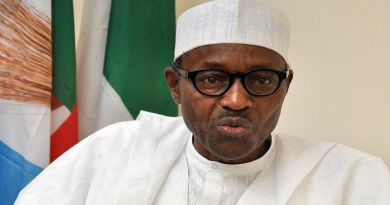Year on Year decline of capital importation into Nigeria – Coronation Economic Notes
The National Bureau of Statistics (NBS) has released its latest report on capital importation for Q4 ’21. The data was obtained from the CBN and compiled using information on banking transactions from all registered financial institutions in Nigeria. The total value of capital imported in Q4 ‘21 was estimated at USD2.2bn, representing a rise of 26.4% q/q and 109.3% y/y. However, for FY ‘21, the total value of capital imported was estimated at USD6.7bn, representing a decline of 30.6%y/y from USD9.7bn recorded in 2020. The capital importation data is gross, and not adjusted for capital exports.
The category referred to as portfolio investment accounted for 29.4% and 50.5% of capital importation in Q4’21 and FY’21 respectively. Portfolio investments recorded a decline of 47.2% q/q to USD642.9m in Q4 ’21. For FY ’21, it declined by 34.1% y/y to USD3.4bn in 2021.
In Q4 ‘21, money market instruments accounted for 86.9% (USD558.9m) of total portfolio investments but declined by 29.8% q/q from USD795.7m recorded in Q3 ’21. For FY ’21, it accounted for 77.2% (USD2.6bn) of total portfolio investments. However, this is a 37% decline from the USD4.2bn recorded in 2020.

Similar to Q1, Q2, and Q3, there was relatively lower contribution from bonds to portfolio investments in Q4. Bonds contributed 7.1% (USD45.9) to total portfolio investments but declined by 87.4% q/q. For FY ’21, it accounted for 16.7% (USD564.1m) of portfolio investments and this was a y/y increase of 144% from the USD231m recorded in 2020.
Based on the data release, inflow via equities was low in Q4. This asset class accounted for just 5.9% (USD38m) of total portfolio investments. Equities segment declined by -32.7% q/q for Q4 ’21 and -72.6% y/y for FY ’21. The NGX All Share Index (ASI) posted a positive return of 6.1% for FY ’21. Data from NGX show the ratio of local to foreign investment participation at 81:19 in December ‘21.
Foreign direct investment (FDI) inflow grew by 232.3% q/q to USD358.2m in Q4 ’21 but posted a y/y decline of -65.1%. FDI inflow accounted for only 16.4% of capital importation in Q4 ’21 and 10.4% in FY ‘21. Strengthening institutional infrastructure and governance will play a critical role in attracting FDI.

From the data release, we noticed that from a sectorial perspective, capital importation into tanning recorded the highest inflow of USD645.6m, accounting for 29.5% of total capital imported in Q4 ‘21. Total foreign capital inflows into the sector totalled USD1m between Q1 ’13 – Q3 ’21.
Prior to Q4 ‘21, the relatively poor inflow into the sector could be attributed to infrastructural challenges, resulting in reduced competitiveness of domestic products. This has partly led to dumping into local markets from advanced economies across Asia and Europe. Capital inflow into the production sector and electricals sector followed with USD360.1m (16.5%) and USD325.6m (14.9%) respectively. For FY ’21, capital imported into the banking sector was the largest at USD1.5bn and accounted for 21.8% of total capital imported in 2021.

Meanwhile, capital importation by country of origin show that Mauritius ranked top as a source of capital imported into Nigeria in Q4 ‘21 with a value of USD611.5m, accounting for 27.9% of total capital inflows during the period. We note that capital inflow from the United States and South Africa followed with USD321.0m (14.7%) and USD285.8m (13.1%) respectively. For FY ’21, the largest capital inflow came from the United Kingdom with USD2.3bn and accounted for 34.2% of total capital imported in 2021.
Overall, the decline in capital importation in 2021, can be attributed to national security challenges, inadequate infrastructure and elevated headline inflation rate resulting in relatively lower real yields.
SOURCE: Coronation Merchant Bank




